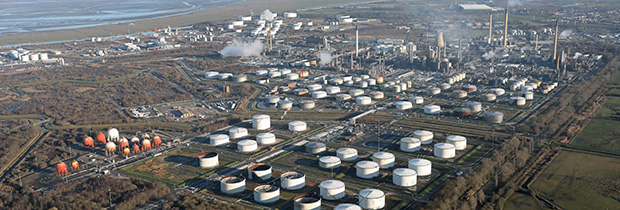Your weekly digest of policy news, funding competitions, and calls for evidence.
What’s been in the news?
UK chemicals regulation IT system goes live
Announced by the Environment Minister, Rebecca Pow, the UK’s independent chemicals regulatory framework came into effect on 1 January 2021. This will be used to manage the compliance obligations of the UK chemicals industry which contributes around £11.2 billion GVA per year to the UK economy. The Comply with UK REACH system can be used by businesses to fulfil their transitional provisions and create new registrations. The Government adds that the system enables the UK to make decisions on regulation of chemicals that are based on the best available scientific evidence, ensuring that chemicals remain safely used and managed.
The UK REACH principles align with those of the EU REACH. These include the ‘no data, no market’ principle, the ‘last resort’ principle on animal testing, access to information for workers and the precautionary principle.
Rebecca Pow said ‘Having our own independent chemicals regulatory framework will ensure that we make decisions that best reflect the UK’s needs while maintaining some of the highest chemicals standards in the world.’
For more information on this topic, see here:
https://www.soci.org/news/2021/1/uk-chemicals-regulation-it-system-goes-live
https://www.gov.uk/guidance/how-to-comply-with-reach-chemical-regulations
Funding boosts to cut industry carbon emissions
As part of the green industrial revolution ambition, the UK government have awarded £8 million across projects that will aim to decarbonise the UK’s major industrial clusters. This funding is delivered as part of UKRI’s ISCF Industrial Decarbonisation Challenge (IDC) and all six projects, across different regions of the UK, will work with the local authorities to reduce industrial carbon emissions and create thousands of new jobs.
The net zero industrial zones will aim to reduce their CO2 emissions to as close to net zero as possible via the use of low-carbon energy sources and carbon capture technology. The amition is to see at least the North West cluster become a net zero green hotspot by 2040, and four other regions low-carbon regional zones by 2030. Investment will be focused on areas such as research, technology demonstrations, shared infrastrucure and research and cluster collaboration.
The six winners of this ‘green boost‘ have produced initial plans for reducing emissions across these major industrial clusters. Bryony Livesey, UKRI Challenge Director, Industrial Decarbonisation, said: ‘Today’s announcement shows that the industrial clusters campaign is proceeding at pace. This second phase of the competition asks companies and partners to plan for comprehensive changes to industries, products and supply lines.‘
In simlar news, the UK’s world-famous whiskey distilleries are now able to switch to low carbon fuels such as hydrogen, biomass and repurposed waste, due to £10 million in funding from the government.
UK scientists receive £200 million
UK science facilities are to receive a £200 million investment enabling scientists and researchers to tackle major global issues such as climate change and Covid-19. The funding is part of the government’s flagship R&D roadmap which is committed to ensuring that the UK is the best place in the world for scientsits and researchers to live and work.
This upgrade to scientific infrastructure will see £27 million go to researchers at UK Medical Research Institutes providing cutting edge technology, for example to improve the detection and modelling of diseases and therefore boosting the resilience to future pandemics. Other facilities include a first-of-its kind floating offshore wind testing lab at the University of Plymouth as part of a £25 million package to leading UK universities.
Science Minister Amanda Solloway said: ‘From the world’s most detailed microscopes tracking disease, to airborne drones monitoring greenhouse gas emissions, our investment will enhance the tools available to our most ambitious innovators across the country. By doing so, scientists and researchers will be able to drive forward extraordinary research that will enable the UK to respond to global challenges such as achieving net zero carbon emissions by 2050.‘

Reducing ammonia emissions from urea fertilisers
The government is seeking views on its plans to reduce ammonia emissions in England by regulating the use or sale of solid urea fertilisers.
Deadline: 26 January 2021
You can find further details of this inquiry on the DEFRA website
Environmental Land Management and the agricultural transition
The government is seeking views on its latest plans for the agricultural transition around the design of the Environmental Land Management National Pilot.
Deadline: 29 January 2021
You can find further details of inquiries here.
The regulation of genetic technologies
DEFRA are seeking views on the legislation of GE organisms and breeding methods, following the UK leaving the EU.
Deadline: 17 March 2021
Further information can be found here.
Commercialising Quantum Technologies: feasibility studies round 2
UK registered businesses can apply for a share of up to £7 million for feasibility studies or market research projects. Projects must last from 12 to 18 months and must end by 31 July 2023.
Deadline: 10 March 2021
ISCF TFI: large collaborative R&D projects
UK registered business or RTOs can apply for a grant share of up to £8 million for R&D projects to improve the UK foundation industries. Projects must last between 12 and 24 months.
Deadline: 10 March 2021
ATF: moving the UK automotive sector to zero emissions
UK registered organisations can apply for a share of up to £7 million for technical feasibility studies to support the UK’s electrified automotive supply chain. Total project’s cost can be up to £1 million and must start on 1 April 2021.
Deadline: 27 January 2021
Eureka Eurostars 2: round 15
UK SMEs can apply for a share of up to £2.5 million to collaborate with partners across Europe and associated countries. Grants are available to UK registered research-performing SMEs.
Deadline: 4 February 2021
You can find further details of the funding calls on the Government website




